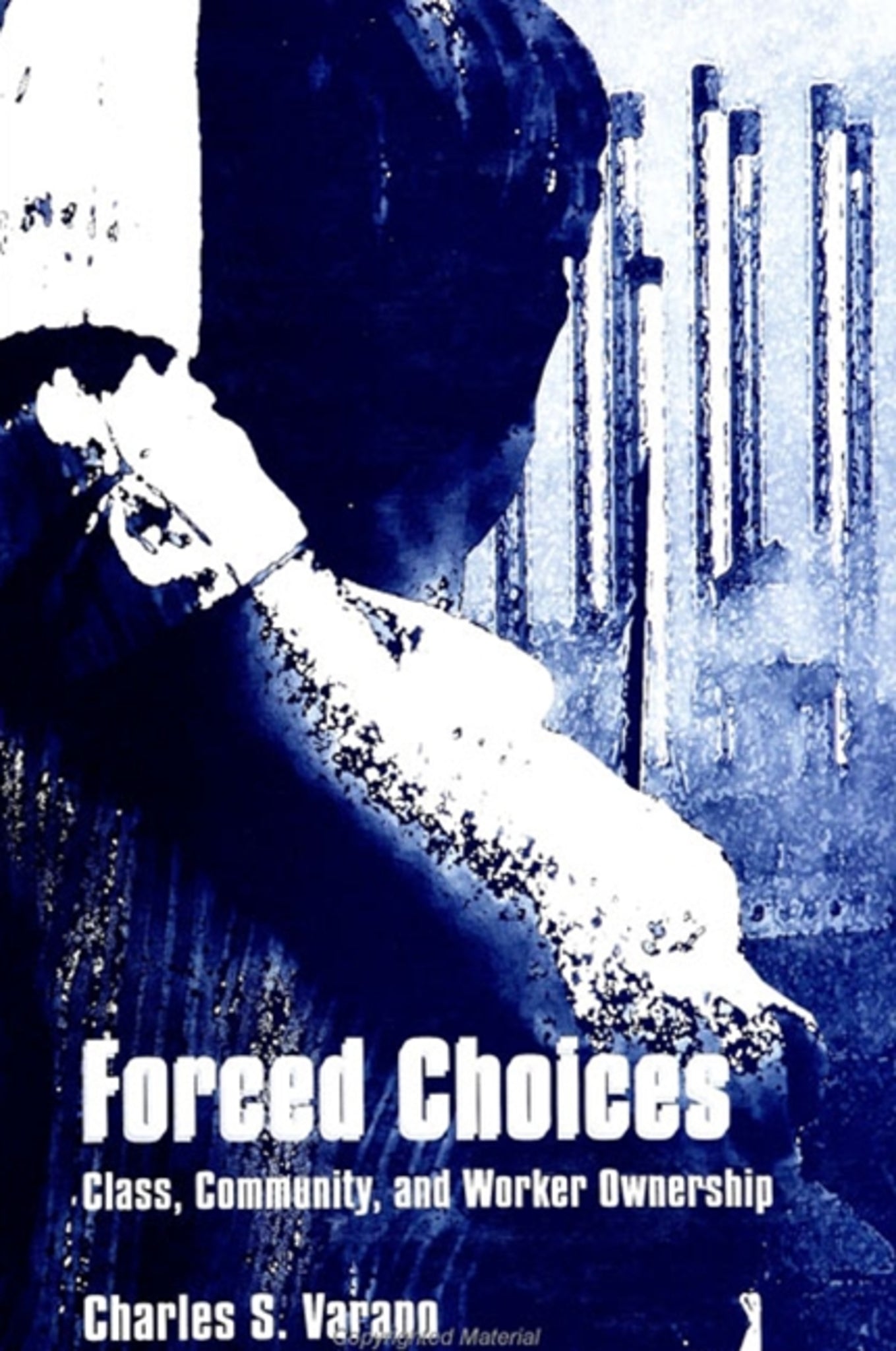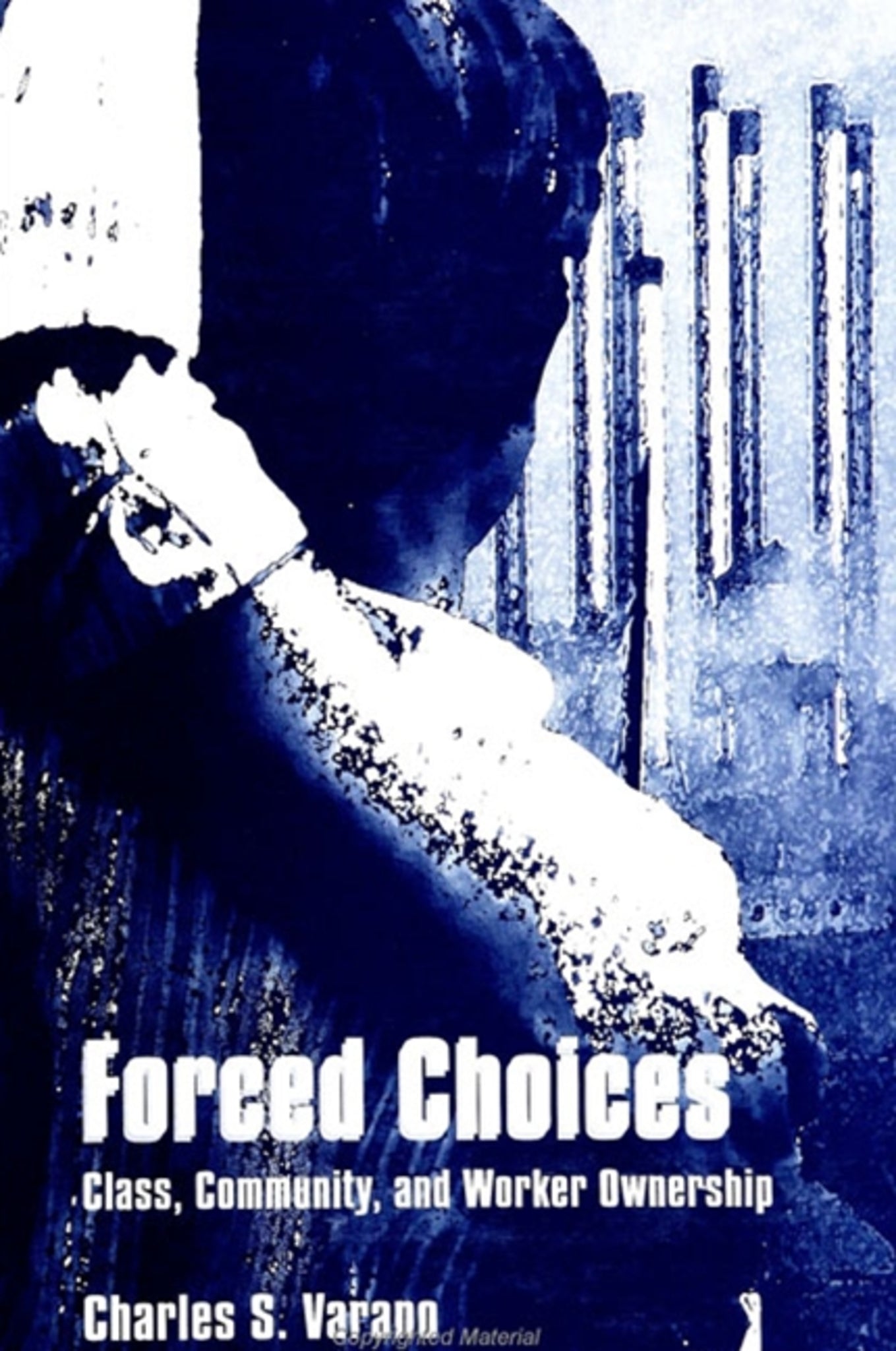We're sorry. An error has occurred
Please cancel or retry.
Forced Choices

Some error occured while loading the Quick View. Please close the Quick View and try reloading the page.
Couldn't load pickup availability
- Format:
-
27 May 1999

Examines the celebrated case of Weirton, West Virginia where steelworkers and area residents fought to save a steelmill, community, and way of life.
CHOICE 1999 Outstanding Academic Title
2000 Distinguished Scholarship Award presented by the Pacific Sociological Association
What happens to employees when their company decides to close? Thousands of workers across America have faced this prospect in the past twenty years, but relatively few have chosen to buy the company and operate it as a worker-owned concern. Forced Choices examines the celebrated case of Weirton, West Virginia, where steelworkers and area residents fought to save a steelmill, community, and way of life.


"…an ambitious and important study … Forced Choices is a vivid reminder of the way that corporate managements often attempt to contain employee ownership and involvement and to manipulate ownership and involvement plans to increase profits rather than empower workers." — American Journal of Sociology
"This book is clearly going to be a sourcebook for those interested in the conditions that affect employer-worker relations, employee ownership, and the current trends in American industry. It captures the flavor of the struggles of workers and is likely to be a classic in the same sense that Alvin Gouldner's Wildcat Strike has been for well over forty years." — A. Gary Dworkin, University of Houston
"Forced Choices is a great read; a clearly written, engaging story! For those interested in worker ownership, local economic development, the history of company towns, the steel industry, unions or industrial democracy, this is fascinating material." — Robert N. Stern, Industrial and Labor Relations–Cornell University
"This book makes a very important contribution to understanding the dynamics behind the rhetoric of employee ownership." — Teresa Ankney, Hood College
Illustrations
Acknowledgments
PART I. INTRODUCTION
Introduction
Weirton: The Place and Its People
An Ethnography of Class, Community, and Worker Ownership
1. Worker Ownership and Class in America
Worker Ownership
Employee Participation
Paternalism and Class
Class and Class Consciousness
Outline of Chapters
PART II. HISTORICAL ANTECEDENTS
2. Forced Choices I: Company Town
The Antecedents of Paternalism: 1909-1933
The Challenge: 1933-1951
Quiescence: 1951-1982
3. Forced Choices II: "Buy It or Lose It"
One Side of Paternalism's Legacy
Divided Loyalties
"Business is Business, Morals is Morals"
The Limits of Dissent
The Final Deal
PART III. WORKERS BY DAY
4. Forced Choices III: Employee Participation
Participation by Decree
The Structure of Employee Participation
Ideology and Employee Participation
Summary
5. A Fragile Trust: The Normative Order of Employee Participation
Facilitators as Industrial Therapists
Workers and Employee Participation
Internal Communications: Public Relations at Work
PART IV. OWNERS BY NIGHT
6. Class and Worker Ownership
Worker Ownership and the "Equity solution"
Owners by Night...
...Workers at Heart
7. The Moral Economy of Worker Ownership
The Value of Labor
Property Rights
Community, Nepotism, and Local Control
Summary
8. The Struggle for Control
A Changing of the Guard
Confrontation
Two Years Later: The Struggle Continues
9. Conclusion
The Lessons of Worker Ownership and Participation at Weirton Steel
Class, Community, and Worker Ownership
Notes
Bibliography
Index



